Northampton ambulance crews strike with heavy hearts, says rep
- Published
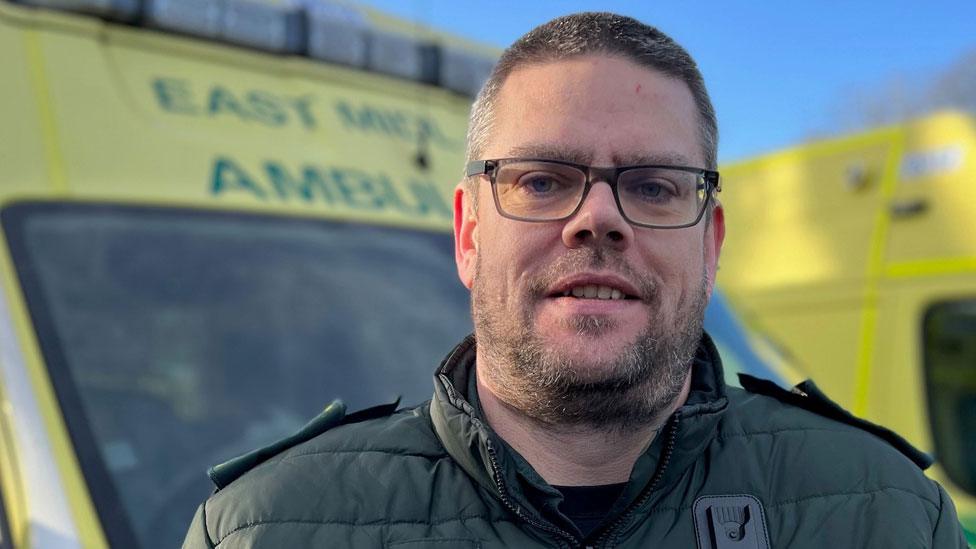
Ambulance technician Andrew Blankley said GMB members had "struggled with the decision" to go on strike
Crews are striking with "very heavy hearts", an East Midlands Ambulance Service worker said.
About 20,000 ambulance workers in England and Wales walked out for the second time without pay earlier.
GMB rep Andrew Blankley said strikers at Mereway station, Northampton, also responded "without hesitation" to a life-threatening call-out.
The government said the strike action was unnecessary, but it had put contingency plans in place.
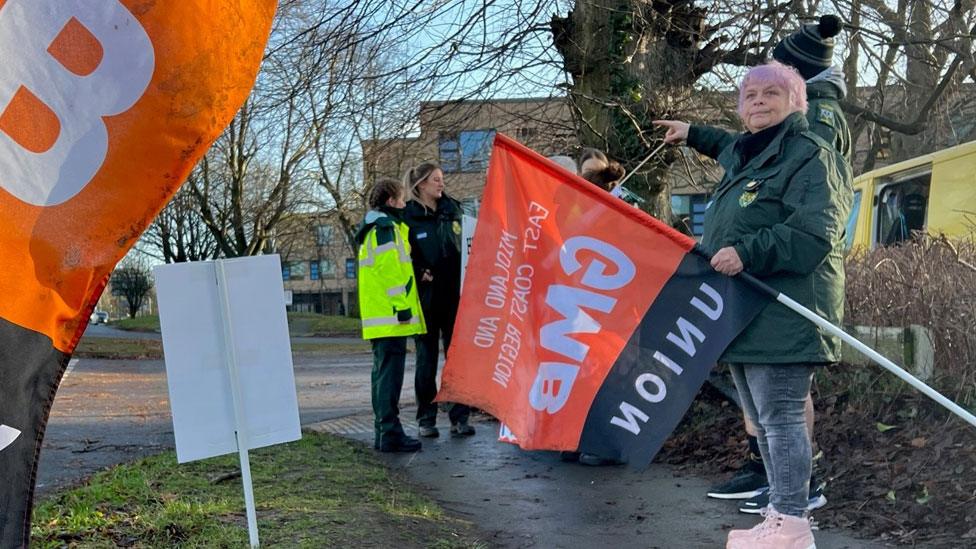
Staff joined a picket line at Mereway Ambulance Station in Northampton
NHS managers warned the impact of this strike was likely to be worse than last month's stoppage.
All ambulance services - apart from the East of England Ambulance Service NHS Trust - are affected.
Mr Blankley said colleagues had "struggled with the decision to get to this point" but added "we're trying to make a stand so we're listened to".
"We're all aware, there is a crisis within the NHS at the moment and unfortunately it's been difficult to get the government to listen to what's really going on on the ground to try and save the NHS going forward," he said.
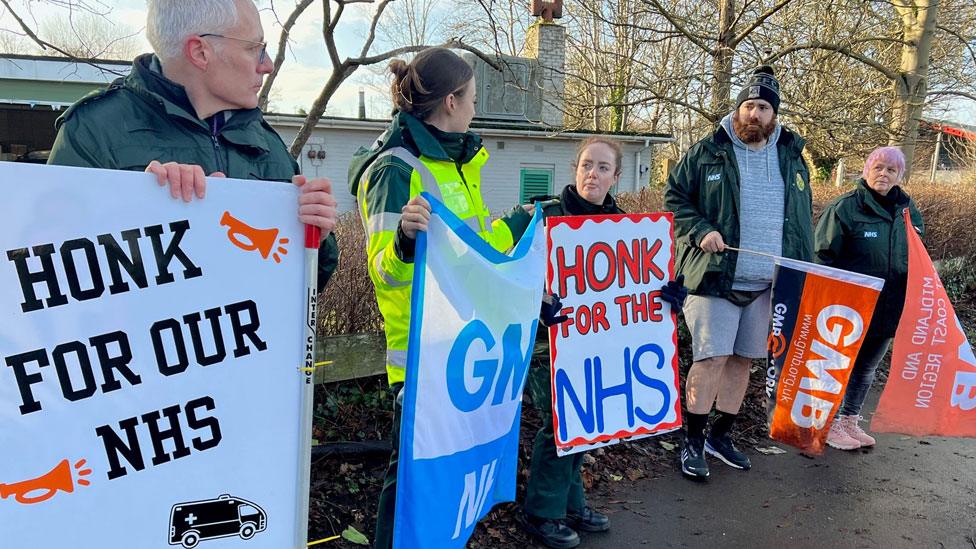
Some motorists beeped their horns in support as they drove past the Northampton picket
The action involves unionised call-centre and control-room staff, as well as emergency crews.
An urgent call came in to Mereway just before 11:00 GMT, which meant life-saving intervention was needed, so crew members came off the picket line to respond.
Mr Blankley said: "Potentially it does weaken the strike action, but it also goes to prove to the public that we're actually here to make a difference and we don't want to put the public at risk regardless of whatever strike action we may be taking.
"Everyone joins this job to make a difference to the public in their hour if need."
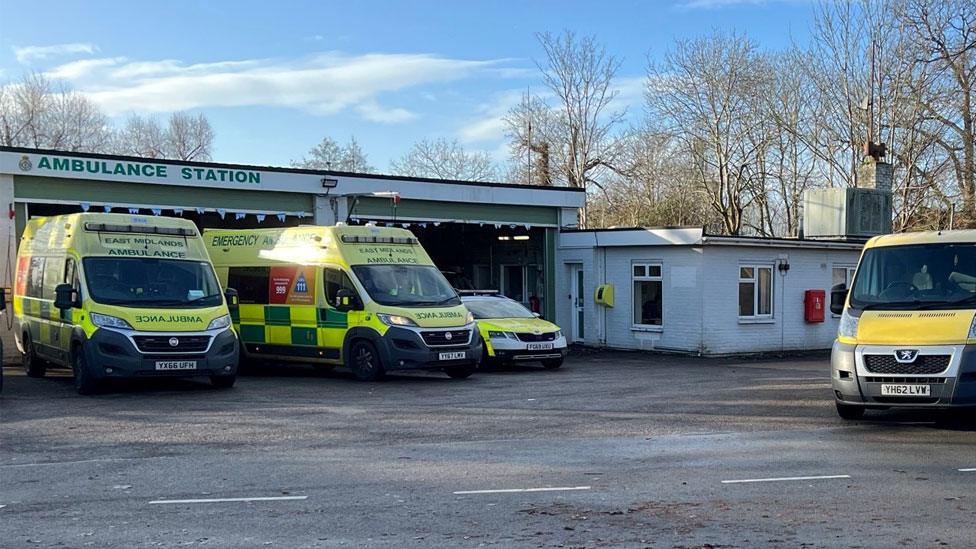
There was "a unanimous vote" this morning for the strikers "to step in and help where needs be", Mr Blankley said
While some regional ambulance services are seeing strike action from the GMB and Unison, it is only GMB members who are walking out in the East Midlands, and their 24-hour strike will last until 23:59 GMT.
Ambulance staff want above-inflation pay rises, but have not announced a figure.
Unions argue that any offer needs to be high enough to prevent a recruitment crisis.
The government says pay rises for ambulance workers and nurses were decided by independent pay review bodies.
Ben Holdaway, East Midlands Ambulance Service director of operations, said: "Industrial action last took place at EMAS on 21 December, and despite a 33% reduction in emergency and urgent calls on the day, it remained immensely challenging.
"We are again working closely with trade union colleagues, and NHS and blue-light service providers across the region to do all we can to minimise the impact on patient safety."
Health Secretary Steve Barclay said: "Today's ambulance strike is an unwelcome return to unnecessary disruption and comes at a time when the NHS is already under huge pressure from Covid and flu.
"While we have contingency plans in place, including support from the military, community first responders and extra call handlers, to mitigate risks to patient safety, there will inevitably be some disruption for patients with fewer ambulances on the road."

Find BBC News: East of England on Facebook, external, Instagram, external and Twitter, external. If you have a story suggestion email eastofenglandnews@bbc.co.uk, external
- Published2 May 2023
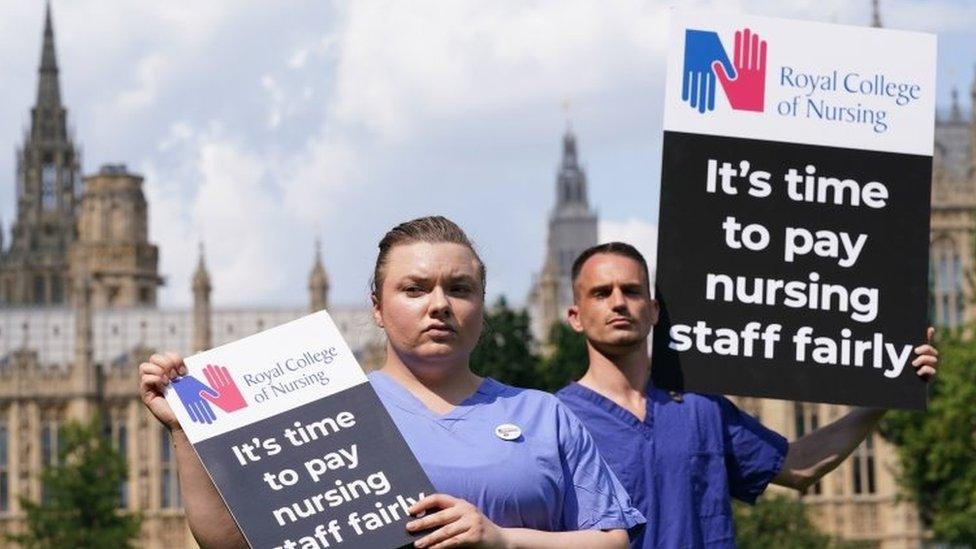
- Published10 January 2023
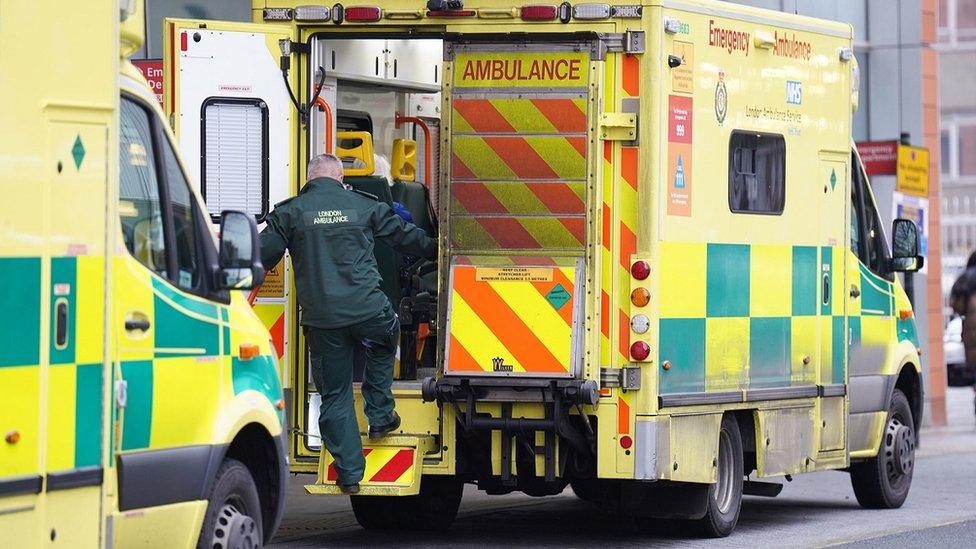
- Published10 January 2023
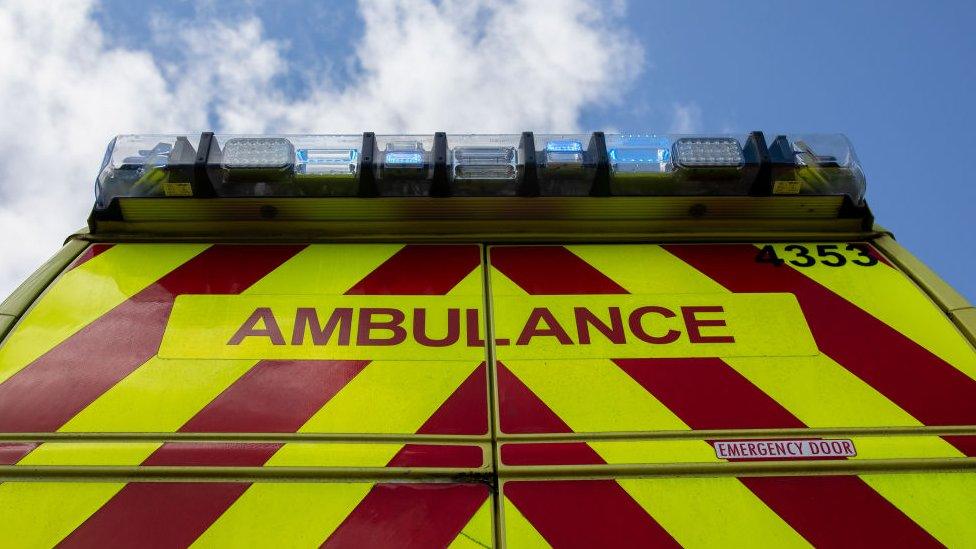
- Published6 January 2023
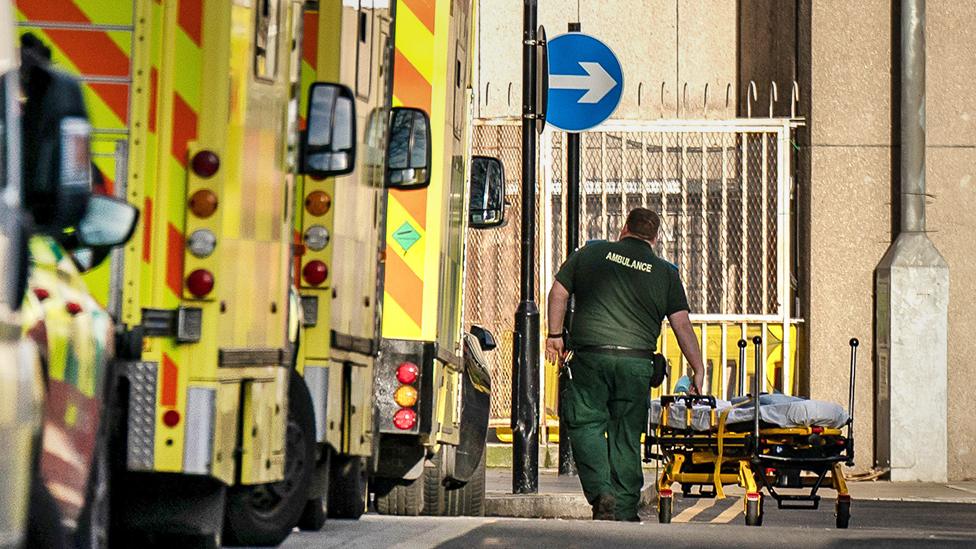
- Published7 January 2023